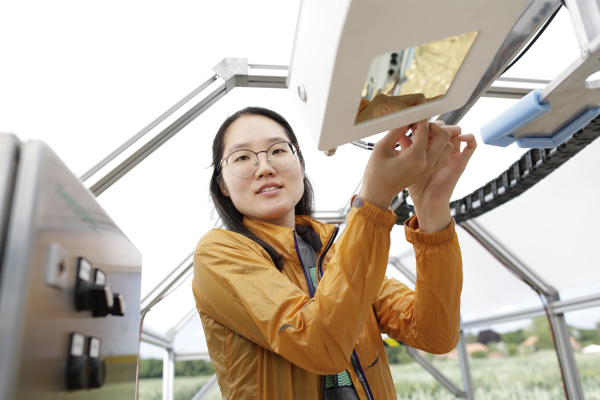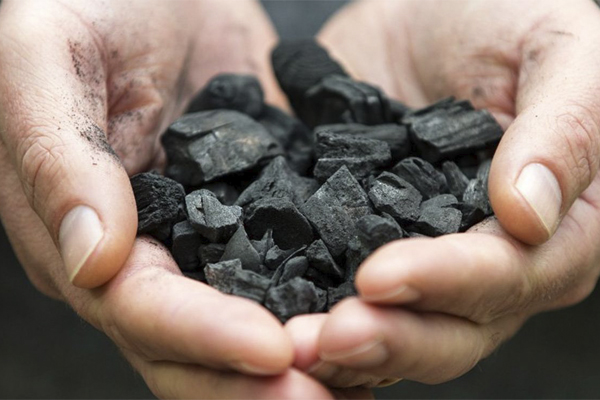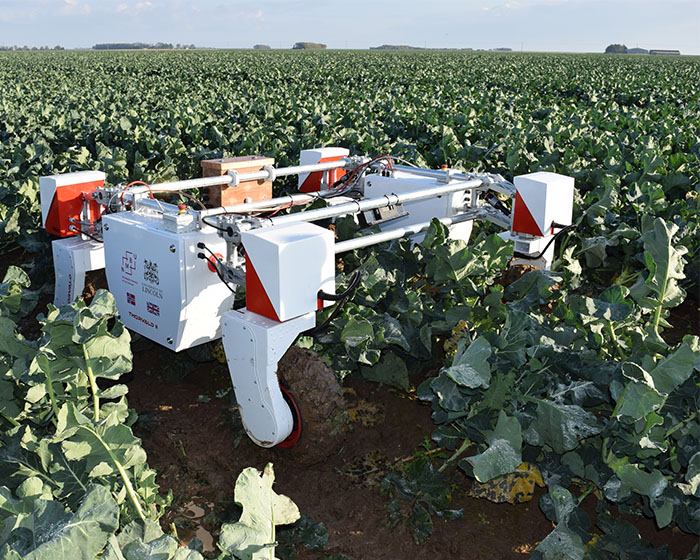Collaborative Fruit Retrieval Using Intelligent Transportation
The aim is to create an innovative approach for soft fruit producers that drives labour productivity, reduces waste, and increases marketable yield. It will help to de-link the sector from critical dependencies on seasonal labour and drives towards net-zero by reducing farm waste.
Project Lead: Professor Elizabeth Sklar
Co-Investigator: Marc Hanheide
Funder: Innovate UK
AgriFood4NetZero: Plausible Pathways, Practical and Open Science for Net Zero Agrifood
The AgriFood4NetZero Network+ brings together key research leaders and their organisations and networks in a mission-led collaboration. The Network adopts a co-development approach to engage scientists and stakeholders to progress and prioritise UKRI and other research to support the agri-food system’s contribution to transitioning to a net zero UK by 2050.
Project Lead: Professor Simon Pearson
Funder: UK Research and Innovation
Plant selection and breeding for Net Zero
The outputs of this project will provide a pipeline to accelerate selection of biofuel crops with high yields that are climate resilient and minimise environmental impact.
Project Lead: Professor Simon Pearson
Co-Investigators: Elizabeth Sklar, Oorbessy Gaju
Funder: UK Research and Innovation
Decarbonising agriculture: synergistic nitrogen-fixing bacteria and photocatalyst to maximize fertilizer efficiency and improve air quality
This project will upscale the material manufacturing process (target capacity: 15 tons to cover 15,000 hectares of crop land) to meet the requirement for commercial application of R-Leaf to achieve and optimise the expected benefits and impacts. R-Leaf can capture atmospheric NOx and convert it into nitrate directly on crop-foliage to improve crop-growth and yield. The project aims to optimise the recommendation of the solution for a maximum output through efficacy testing, develop quality control measures for consistency of production, quantify the impact of the technology, and reflect the carbon credit value potential to support adoption.
Project Lead: Dr Taghread Hudaib
Co-Investigators: Iain Gould, Ravi Valluru
Funder: Innovate UK
Climate SAFE
Climate SAFE is a radical and transformative whole systems approach that transitions from traditional organic farming on degraded lowland peat, towards climate resilient, controlled environment agriculture with a broad array of interlinked societal, environmental, and economic benefits.
Project Lead: Professor Simon Pearson
Co-Investigator: Amir Badiee
Funder: Innovate UK

/prod01/university-of-lincoln-cdn-pxl/media/responsive2017/research/Net,Zero,Agriculture.jpg )








